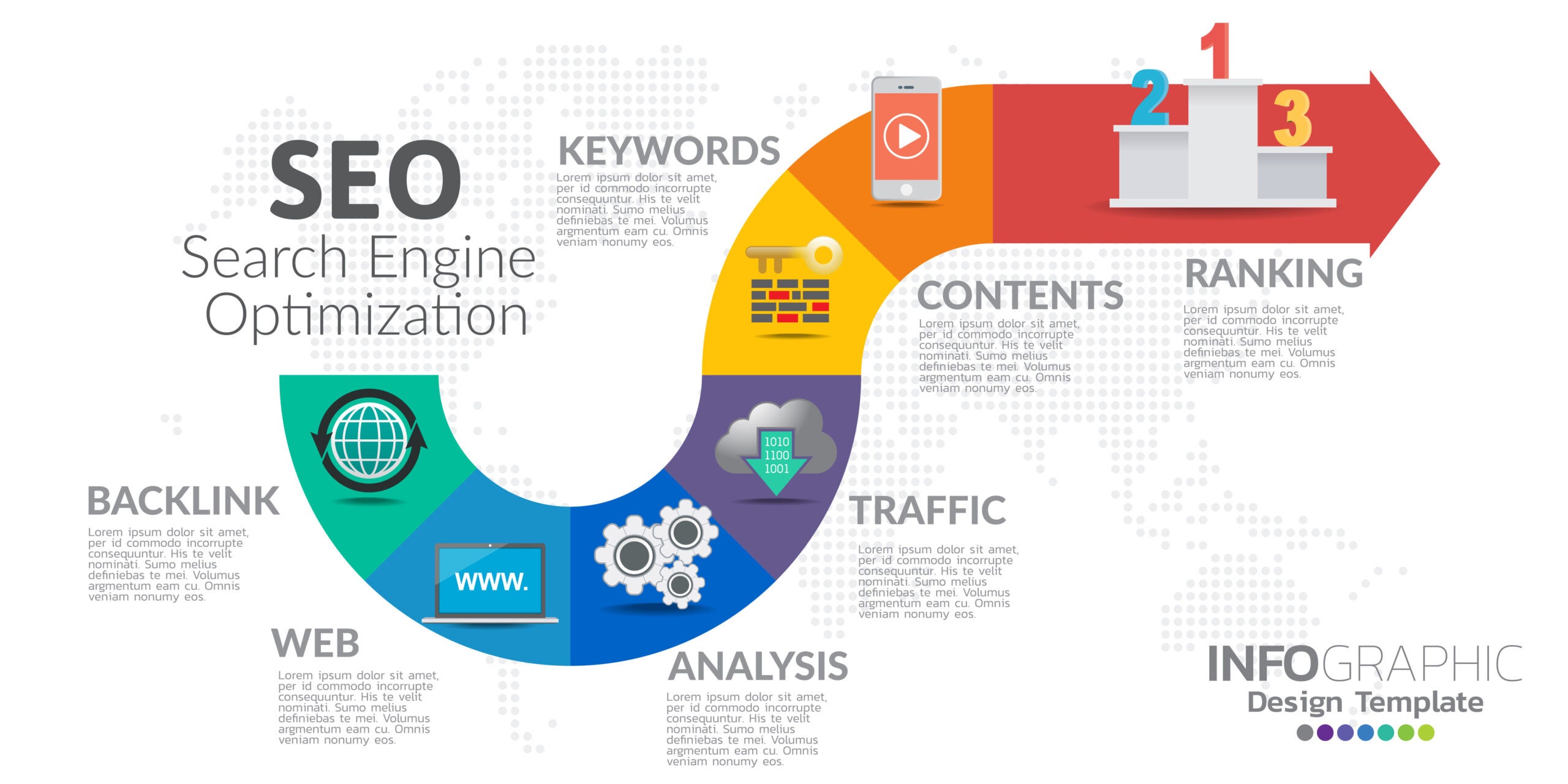
Growing a small business isn’t easy. It never has been, and it likely never will be. As a business owner, there are a never-ending series of obstacles that stand in your way. You’ll make mistakes, lose money, deal with competitors, struggle to garner attention, and more. However, if you stick with it through the ups and downs, the rewards are astronomical. Read on to see how to grow your business with SEO (search engine optimization) and improve search engine rankings.
One of the obstacles most commonly faced by growing businesses is a lack of attention. In the year 2024, we have a larger variety of methods to create awareness than ever before. Gone are the days when billboard ads and radio commercials were the most effective ways to attract customers. Businesses can now leverage social media marketing with ads on YouTube, Instagram, and Facebook, capable of attracting millions of views.
With many businesses opting for paid sponsorships, other marketing options are sometimes overlooked. We’ve all heard the saying “The best things in life are free”. Strangely enough, that can also be applied to business growth.
SEO is not only free, but in many ways, it can actually be more effective for expanding a business than paid ads. SEO can garner millions of virtual visitors to a website. However, what makes it such a potent marketing strategy is how it attracts highly targeted visitors… Without touching your budget.
For example, if someone searches “best laptops 2024” on Google, hundreds of laptop-related articles will appear. Once the searcher clicks an article, we know they’re highly interested in laptops, meaning they’re more likely to buy a laptop. This can be better than paid ads since they might target people who aren’t looking for new laptops in the first place.
The more optimized articles you create, the more likely they are to rank. Many factors play into creating great content. Here are the most fundamental strategies for SEO.
Key Factors of SEO:
1. Keyword Optimization: Using relevant keywords in a website’s content, meta tags, headings, and other areas to match search queries.
2. Quality Content: Writing accurate, valuable, and captivating content that satisfies the users search intent. Ideally, your content should be easy to read and skimmable.
3. On-Page SEO: Optimizing various on-page things such as titles, meta descriptions, headings, and URL structures to make your content more accessible to search engines.
4. Off-Page SEO: Building site authority through things like backlinks from reputable websites, social media signals, and other parts of online credibility.
5. Technical SEO: Improving your website’s technical areas, like general site speed, page loading speed, mobile usability, and indexing.
6. User Experience: Improving the overall user experience to reduce bounce rates and increase user engagement, which boosts your impact in search rankings.
The Basics Of SEO
SEO stands for Search Engine Optimization. It’s a set of practices and strategies aimed at optimizing online content to improve visibility and ranking in search engine results.
The main goal of SEO is to improve the chances of a website appearing in the top search results of platforms like Google, Bing, Yahoo, Amazon, and even YouTube. There are also SEO strategies for social media platforms like Instagram and TikTok, although their strategies are typically less in-depth than platforms like Google.
If you still aren’t sold on the value of SEO, it’s worth noting that virtually every major company that has an online platform uses some form of it. Corporate giants like Walmart, Disney, and IBM use it. Also, websites with popular blogs such as BuzzFeed, The Huffington Post, HubSpot and more use SEO. Practically any major online brand uses SEO in its marketing strategy.
When you search for a new television, Walmart will likely be at the top of your screen. Searching for software tools? HubSpot might just be ranking in the number one spot on Google. If these ultra-successful businesses see potential in SEO, why shouldn’t small businesses?
If you’re a beginner at SEO, you should remember it’s a process that takes time. A website typically needs to write dozens of optimized articles and build site authority before it gains significant traffic. For individual bloggers, it can sometimes take over a year, but if you have a small team of writers it can potentially be done in a few short months. Of course, many variables can affect how quickly your site gains traffic, so those time frames aren’t accurate for everyone. However, once a site has enough articles ranking, it can rake in thousands of highly targeted customers.
Steps To Grow Your Business With SEO
There is an immense amount of potential to grow your client base with SEO. The primary way to do this is by building your site authority. Website authority is the credibility, trustworthiness, and influence a website has in the eyes of a search engine.
Site authority is a crucial factor that search engines use to determine how well a website should rank in search results. Website authority is also commonly referred to as “domain authority” (DA), or “domain rating” (DR), which is an Ahrefs metric. An example of a relatively high-DR site would be smallbizclub; their domain rating is 67 according to Ahrefs.
This means that they are on the higher end of the authority spectrum, allowing them to rank easier on search engines like Google.
The Main Keys To Building Site Authority
Grow Your Backlink Profile
An effective way to grow your DR is by obtaining links pointing to your website from other reputable websites. These are called “backlinks”. These referring domains improve your reputation in the eyes of search engines. Most well-known websites likely wouldn’t link to something that isn’t legitimate, so backlinks are almost like social proof for the Google algorithm. You can grow your backlink profile by reaching out to websites and proposing guest posts, link exchanges, or other collaborations. You can also create high-quality, shareable content that naturally attracts attention. This will build a more organic backlink profile, although it tends to take much longer than artificially building links.
Increase Your Organic Traffic
By getting more visitors to your website, it suggests that you’re creating quality content that people find useful. One way to increase your chances of ranking is by using optimized keywords in your content writing. Websites like Ahrefs, Semrush, or SurferSEO have keyword tools you can utilize to find which keywords are ideal. Once you find the best keywords to use, make sure you add them to your content in the right manner. The keywords should be placed in:
-
Titles
-
Multiple headings
-
Meta tags/meta descriptions
-
URLs
-
Throughout your writing content
Although it is vital to add keywords to your content, it’s equally important to add them naturally. Your writing should never sound robotic or unnatural. In a well-written blog, added keywords should be completely unnoticeable to readers. Make sure your sentences sound smooth and don’t affect the natural flow of your writing.
Internally Link To Your Website
When you click on an article and it links to another article on the same website, these are called internal links. They connect different pages within your site, guiding visitors to relevant content. By placing internal links, you not only make navigation easier for users but also spread the authority across your pages.
When a page gains authority, it can pass on some of its link juice to other pages, boosting its credibility. Internal links help users and search engines explore your content and enhance your overall site authority… Think of them like the glue that holds your site pages together. Internal links are crucial for creating an optimized blog.
The Potential In SEO
Growing your business with SEO can be a long, tedious process. However, if you’re persistent, the rewards are absolutely worth the time and effort. Some websites garner millions of organic visitors per month from SEO practices alone. If you’re first starting to build your site authority, you won’t be able to gain millions of traffic overnight. However, 10K or even 100K traffic or more is very attainable with the right strategies. Have a solid writing team, optimize your website and blog content, increase the amount of articles you create, and build your site authority. If you do all of these things consistently, you can gain tons of organic traffic through SEO, and your small business will skyrocket.
1305 Views













